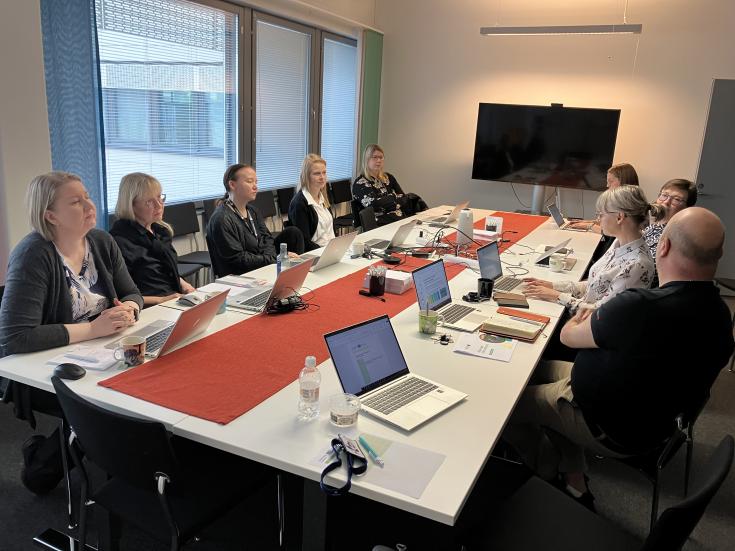Organizational Learning Meeting nº 2/4 in Jyväskylä, Finland
In this meeting all climate change related projects shared their greetings and ongoing topics. We had four projects on stage, two of them Interreg Europe projects NACAO and PROMOTER (renewable energy), Interreg Baltic Sea Region project GIA (Green Industrial Areas) and LUMOAVA (Leading with knowledge of nature and climate as a strength for Central Finland). Project manager Anna-Kaisa Tupala presented NACAO and provided overvierw to published Situational analysis’ results, in particular of map-based information on areas suitable for carbon sequestration in the province. These are fields in agriculture, mires and forests. Based on results of the analysis, coming autumn 2024 Tupala’s working hours will be used to plan and produce two local events for agricultural sector with headline “New sources of income from peat-based fields”; one in Joutsa municipality in south-east part of the region and another in Karstula/ Kinnula/ Pihtipudas, the north-east part of region. These event plans were presented in the meeting among other coming plans, which are preparation of a funding application with the City of Jämsä for Pilot Action and next thematic seminars. Happily project management had news, that many local stakeholders are now interested to join to the meeting in Bremen and Finnish delegation will be larger than at any previous meeting.
In addition, Tupala presented special conclusions that have taken shape by the mid-point of the project. Policies have become fast-paced and unpredictable, both nationally and across the EU, which means that bottom-up, self-managed future-making within the region is needed. Finland and Central Finland Region have committed to carbon neutrality by 2035 and 2030 respectively, and the latter is also committed to halting biodiversity loss. As a result, and in order to achieve these goals, we need new thinking in the region, for example on future livelihoods, what the upcoming voluntary carbon market will mean for landowners (more/different income?) but also for the forest industry (less wood to buy?), and what new sources of income climate change adaptation will create in our region. Tupala also shared greetings from the NACAO steering group that EU regulation is worth following closely, including the CSDDD directive, which affects up to the primary producers, and considering the validity and usefulness of carbon sequestration calculations on a case-by-case basis: what the calculation actually takes into account. Or, conversely, if mitigation measures are taken, how to make them visible.
The given presentation received positive feedback and participants proposed that these kind of follow-up discussions are really important for our whole team in Regional Council office. By sharing the ongoing topics of different projects we are able to learn and diffuse important data and experiences from other side of Europe to be used for future strategy revisions in our region. Employee learning within the office is also important for provincial development and stakeholder consultation.
